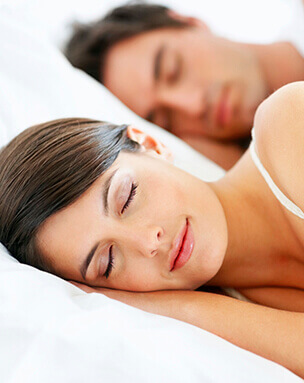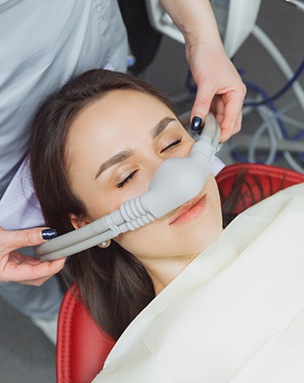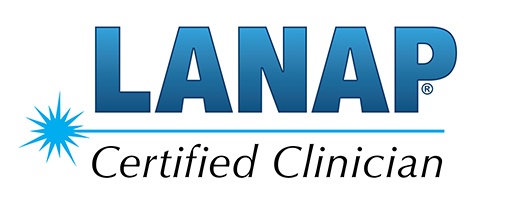Sedation dentistrY - Encinitas, cA

Oral & Nitrous Oxide DEntal Sedation
Are you nervous about your upcoming procedure with Dr. Bita? You’re not alone. Dental anxiety is common for anyone who’s about to undergo a dentistry procedure, regardless of what it’s for. Thankfully, there are ways to alleviate the stressful feelings of anxiety. With options for sedation dentistry in Encinitas, CA like nitrous oxide and oral conscious dnetal sedation, you can have a comfortable, stress-free experience.
Oral Sedation Dentistry
Oral conscious sedation works using a regularly prescribed medication and is administered in the dental office. It is often utilized in combination with nitrous oxide, but it can be used solely as well. The effects of oral conscious sedation do take longer to wear off, and as a result, patients will need to have a friend or family member accompany them to their appointment. In most cases, you will feel back to normal several hours later.
Sedation Dentistry FAQs

At this point, maybe you’re considering sedation dentistry. It’d certainly make your periodontal treatment more comfortable! That said, you likely still have questions about the service. Having the correct details can confirm if sedation is right for you. Fortunately, Dr. Farhoumand and her team have you covered: listed below are some oft-asked questions about dental sedatives. You’ll learn how a sedation dentist in Encinitas works by reading them. For other concerns, though, feel free to call us.
What are the risks of sedation dentistry?
To be clear, sedation dentistry is generally safe. Almost anyone can receive it without complication. However, it does present risks for some people.
In particular, dental sedatives can cause issues for those with pre-existing conditions. Patients with sleep apnea or severe allergies may struggle to inhale nitrous oxide. Similarly, someone taking a specific medication may react poorly to oral sedation. There’s also the possibility that a person will have a unique reaction to a sedative.
Aside from these outcomes, sedation risks are mild at best. Common side effects after a procedure include nausea, headaches, and grogginess.
Does dental sedation put you to sleep?
True enough, sedation dentistry is sometimes called “sleep dentistry.” In reality, though, it normally doesn’t cause patients to snooze. (General anesthesia is the only exception.)
You see, dentists usually want you awake during treatment. They occasionally need you to follow instructions and keep your mouth open. Given that fact, a sedative that puts you to sleep would hinder their work. Dentists thus try to avoid using such substances.
Granted, dental sedation can make your mind a bit foggy. That’s a common side effect of many sedatives. So, you may feel as though you slept even if you didn’t.
Can dental sedation make you sick?
On occasion, yes – dental sedation can make you feel sick. Whether it does, though, will depend on which kind you receive.
For example, consider nitrous oxide sedation. It’s uncommon for a patient to get nauseous from “laughing gas.” The risk can increase slightly the longer you inhale the gas, but the odds are still negligible.
On the other hand, oral conscious sedation carries a higher chance of nausea. That’s only natural – this option is stronger than nitrous oxide. Therefore, the dentist will likely suggest you not eat for a few hours before your procedure. To compensate, you may want to book your visit first thing in the morning.
How long does dental sedation last?
Ultimately, how long dental sedation lasts will depend on the sedative you’re given. Different kinds have different durations.
With nitrous oxide, the effects fade almost as soon as you stop inhaling the gas. It’s to the point that your body will be normal again within five minutes. From there, you should be well enough to drive back home or to your workplace.
Meanwhile, the effects of oral conscious sedation can persist all day. That being the case, avoid driving or operating heavy machinery for 24 hours after the procedure. You should also arrange for someone to drive you home after the appointment.

